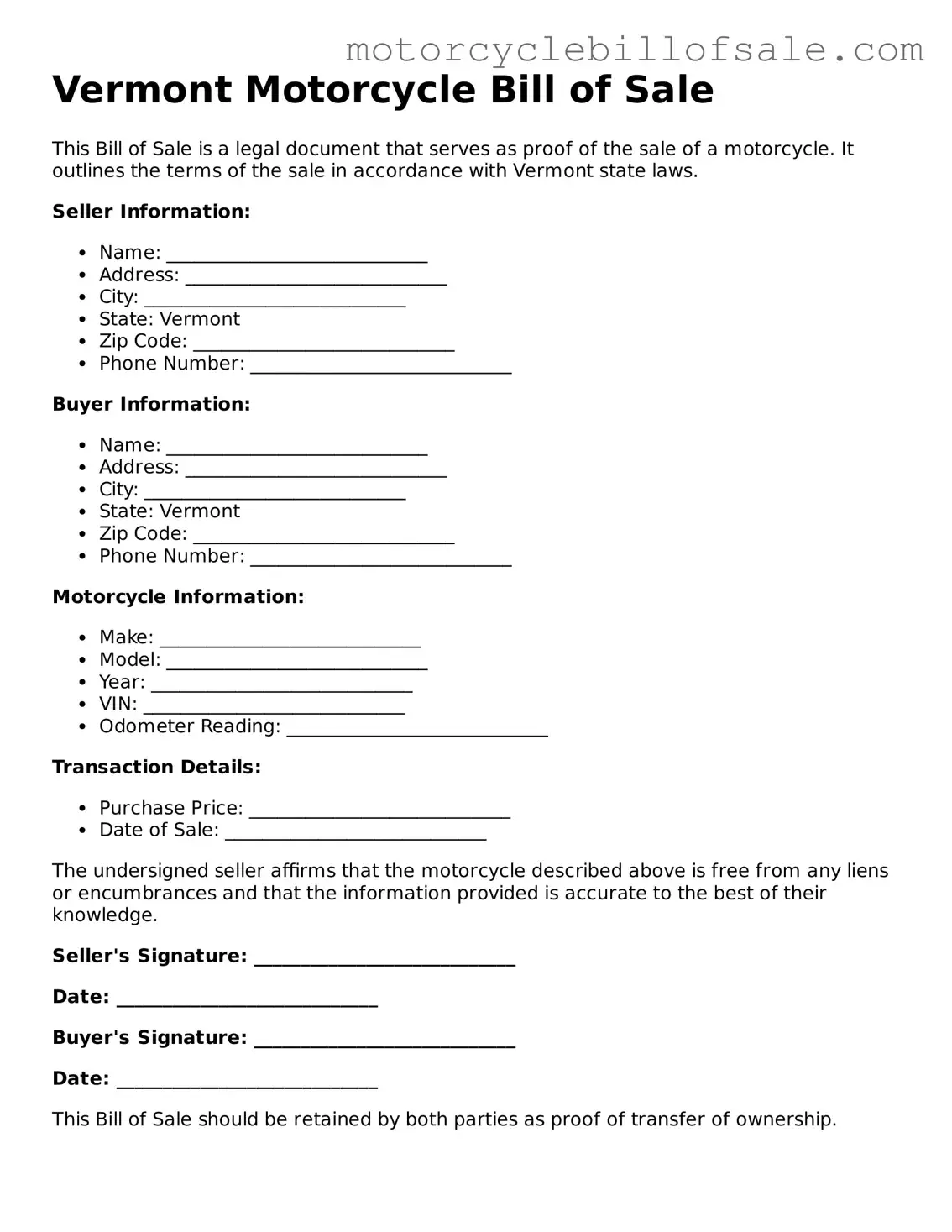Common mistakes
Completing the Vermont Motorcycle Bill of Sale form is a crucial step in transferring ownership of a motorcycle. However, many individuals make common mistakes that can lead to complications down the line. One frequent error is failing to provide complete information about the motorcycle. This includes not listing the Vehicle Identification Number (VIN) or neglecting to specify the make, model, and year. Inaccurate or incomplete details can create issues when registering the vehicle.
Another mistake involves not including the correct sale price. The form requires the sale price to be documented accurately. If the price is omitted or incorrectly stated, it could lead to problems with taxes or future disputes regarding the transaction. Buyers and sellers should ensure that this figure reflects the agreed-upon amount.
Many people also overlook the importance of signatures. Both the seller and the buyer must sign the form for it to be valid. A missing signature can invalidate the bill of sale, leaving both parties vulnerable to future claims or issues. It is essential to double-check that both parties have signed before finalizing the document.
Another common error is failing to date the form. The date of the sale is a critical component that establishes when the ownership transfer occurred. Without a date, the bill of sale may not be considered legally binding, which can complicate matters if disputes arise later.
Some individuals mistakenly assume that a bill of sale is not necessary if they have a title. While a title is important, a bill of sale serves as a record of the transaction and can provide additional protection for both parties. Neglecting to complete this form can lead to misunderstandings or disputes in the future.
People also often forget to include any additional terms of the sale. If there are specific conditions or agreements between the buyer and seller, these should be documented in the bill of sale. Failing to do so can lead to confusion and disagreements later on.
Another mistake is not providing identification information for both parties. Including the full names and addresses of the buyer and seller is essential for establishing a clear record of the transaction. Without this information, tracking down either party in case of a dispute becomes difficult.
Lastly, individuals sometimes neglect to keep a copy of the completed bill of sale. After filling out the form, it is crucial for both parties to retain a copy for their records. This document serves as proof of the transaction and can be vital if any issues arise in the future.
